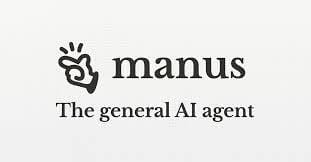Table of Contents
Vercel Secures $300M to Scale AI Coding Platform

Vercel has secured $300 million in Series F funding, pushing its valuation to approximately $9.3 billion. This latest round reflects strong investor confidence in the company’s growth and its focus on cloud and AI technologies. The fresh capital will be used to enhance its AI Cloud capabilities and reinforce its security infrastructure.
A significant portion of the funding will go toward expanding “v0,” Vercel’s AI agent, which already boasts over 3.5 million users. Designed to simplify how developers build and deploy AI applications, v0 enables faster development cycles and easier integration of AI features into web apps.
With this momentum, Vercel is strengthening its position as a key player in the AI and cloud space. By focusing on developer experience and scalability, the company aims to lead the next wave of tools that make AI-powered app development more accessible and efficient.
CoreWeave Lands $14B Deal to Power Meta’s AI Infrastructure

CoreWeave has signed a massive $14.2 billion deal with Meta to supply AI compute capacity through 2031, with an option to extend to 2032. This long-term agreement underscores Meta’s growing need for high-performance infrastructure. It reflects the tech giant’s push to scale its AI-driven products and services.
A key element of the deal is access to Nvidia’s upcoming GB300 GPUs, which promise significant improvements in AI processing power. These next-gen chips will help Meta handle increasingly complex AI models. The partnership ensures Meta stays ahead in the AI arms race.
For CoreWeave, the agreement marks a major milestone in its rise within the cloud infrastructure space. It positions the company as a critical enabler of large-scale AI deployments. As demand for AI compute surges, CoreWeave is emerging as a foundational player in the ecosystem.
Revolutionary Energy Storage Technology Unveiled

A global team of scientists has introduced a groundbreaking energy storage technology that could transform the renewable energy landscape. It combines sustainable materials with AI-optimized algorithms to reach 95% energy retention. This sets a new benchmark for storage efficiency in the clean energy sector.
The breakthrough tackles a core challenge in renewable energy: storing power efficiently and reliably at scale. Traditional storage methods often suffer from energy loss, limiting their long-term use. This new solution could change that, enabling more consistent energy supply.
If successfully commercialized, the technology could speed up the shift to renewable energy worldwide. It holds potential for use in industries, cities, and future smart grids. As clean energy adoption grows, storage like this will be key to making it dependable and widespread.
New Things in Tech You Should Know
Manus: The Autonomous AI Agent for Hands-Free Task Execution

Manus is an autonomous AI agent designed to carry out complex tasks without needing constant human supervision.
Key Features:
dynamic planning, independent decision-making, able to manage multi-step workflows.
Use cases: Could be used in operations automation, project management, or wherever routine tasks can be offloaded — logistics, content scheduling, basic code deployment etc. Because it’s still early, many organizations are only experimenting with it.
Lumio AI: India's Unified Gateway to Multi-Model Intelligence

A multi-model AI platform from India (Indore) that offers access to different leading language/image models via one unified interface. Users can compare outputs, switch models depending on task etc.
Key Features:
Smart model switching, multi-LLM workspace, cost/performance optimization.
Use cases: Good for content creators, researchers, or small teams who want flexibility to try various models without juggling multiple subscriptions/tools. Has potential for adoption in education, media, local language content etc.
Deep Dive: OpenVision Studio - Democratizing Computer Vision
OpenVision Studio represents a significant leap forward in making computer vision technology accessible to developers and businesses of all sizes. This free, open-source platform enables users to create, train, and deploy computer vision models without extensive coding knowledge.
Key Features & Benefits:
• Intuitive drag-and-drop interface for model creation
• Pre-trained models for common use cases
• Real-time model testing and optimization
• Extensive documentation and community support
• Export options for multiple deployment environments
The platform's strength lies in its ability to bridge the gap between complex computer vision technology and practical business applications. Whether you're developing a quality control system for manufacturing or creating a smart retail solution, OpenVision Studio provides the tools needed to bring your vision to life. The platform's growing community and regular updates ensure its continued evolution, making it a sustainable choice for long-term projects. As computer vision becomes increasingly crucial in various industries, OpenVision Studio stands out as a powerful, accessible solution for organizations looking to implement AI-powered visual recognition systems.
Website: www.openvisionstudio.ai
Fun Corner! :)
